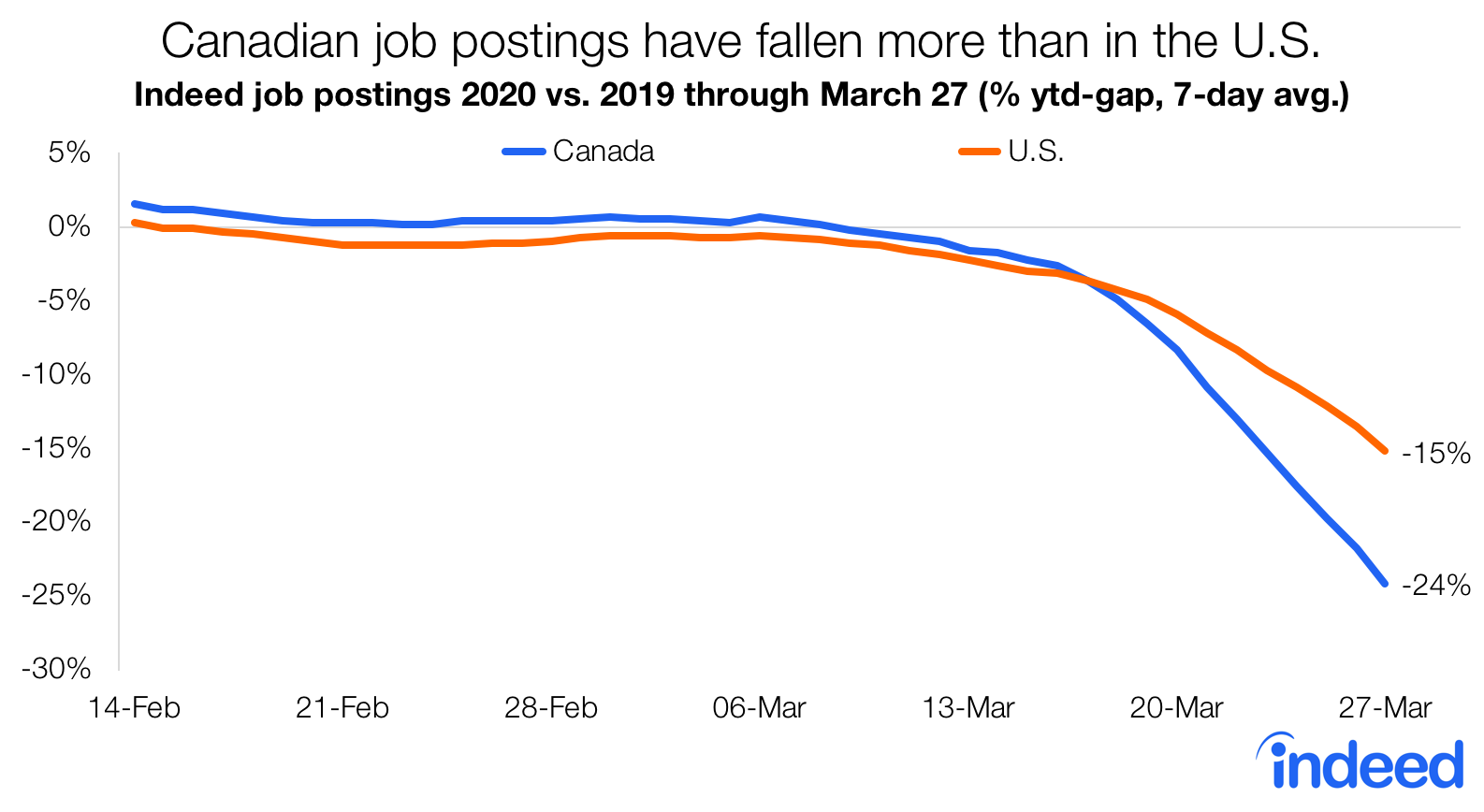This post is updated as of March 31. We will be regularly updating this data as we track how coronavirus impacts the global labor market.
Canadian job postings declined last week, as the economic fallout of the COVID-19 crisis continued. As of March 27th, the trend in Canadian job postings was down 24% compared to 2019. A week earlier, the gap was just 8%.
The pace of the decline in Canadian job postings is even striking when compared to the U.S., where the year-to-date gap on March 27th was 15%. Other data also suggest the immediate labour market shock from the COVID-19 crisis has been greater in Canada than the U.S. While initial claims for U.S. unemployment insurance hit a record level during the week of March 14th, Canadian Employment Insurance reportedly jumped even more on a per capita basis.

Some of Canada’s largest declines in postings compared to 2019 trends have been in sectors directly impacted by the virus and social distancing, like hospitality and tourism, aviation, and food preparation and service, all down over 30% relative to last year’s trend. However, as the economic fallout has spread, job postings have also dropped substantially in other areas of the economy such as:
- Construction, which includes labourers, equipment operators, and skilled tradespeople, down 19% as of March 27th from last year’s trend.
- Accounting, which includes various accountants, financial analysts and others, down 23%, compared to last year’s trend.
- Legal, which includes lawyers, paralegals, and legal assistants, down 25% from last year’s trend.

On the flip-side, job postings have continued to hold-up in a few areas of the economy, particularly in healthcare-related sectors like personal care and home health (which includes support workers and healthcare aides), as well as for physicians and surgeons, both categories down just slightly from last year’s trend. Among non-healthcare fields, postings in software development haven’t fallen off-trend as much as the rest of the economy.
The public health situation and its economic spillovers continue to change on a daily basis. We’ll be regularly updating these data as conditions evolve.
Methodology
To measure the trends in job postings, we calculated the 7-day moving average of the number of Canadian job postings on Indeed. We index each day’s 7-day moving average to the start of that year (Jan 1, 2020 = 100 for 2020 data, and so on), or another date if specified on the chart.
We report how the trend in job postings this year differs from last year, in order to focus on the recent changes in labor market conditions due to COVID-19. For example: if job postings for a country increased 30% from January 1, 2019, to March 14, 2019, but only 20% from January 1, 2020, to March 14, 2020, then the index would have risen from 100 to 130 in 2019 and 100 to 120 in 2020. The year-to-date trend in job postings would therefore be down 8.3% on March 14 (120 is 8.3% below 130) in 2020 relative to 2019.
This information is based on publicly available information on the Indeed Canada website (and other countries named in the post), limited to Canada, and is not a projection of future events, and includes both paid and unpaid job solicitations.






